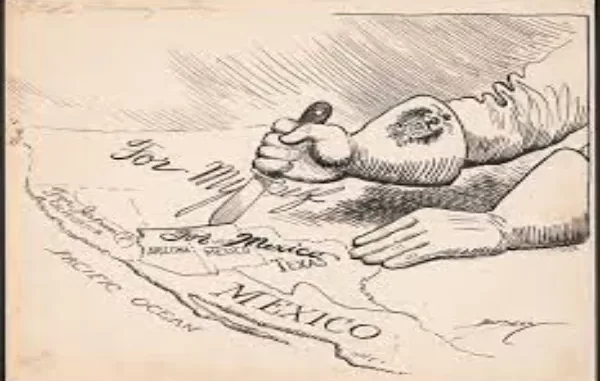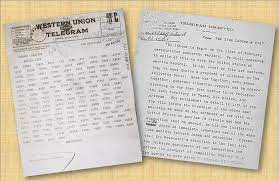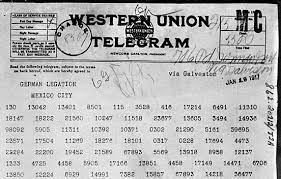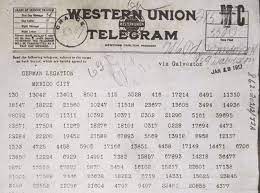
In the history of diplomacy, few documents have had a more profound and far-reaching impact than the Zimmerman telegram. That secret communication from the German Empire to Mexico had consequences that would determine the course of the war and the world order.
Context: First World War
The year was 1917, and the horrors of World War I gripped Europe. With Germany locked in a brutal struggle and the Allies seeking every possible advantage, Zimmermann’s telegram emerged as a desperate attempt to shift the balance of power.
Zimmerman Telegram States
A telegram from German Foreign Secretary Arthur Zimmermann, dated January 16, 1917, addressed to German Ambassador to Mexico Heinrich von Eckhardt. In characters, it contained the proposal that if the United States entered a war with Germany, it would cause a Mexican-German military alliance. The telegram contained three main points:

- Military Treaty: Germany proposed that in the event of a resumption of unlimited submarine warfare (which was Germany’s strategy against the British naval blockade), Mexico should enter a counter-attack against the U.S. as an ally of Germany.
- Economic Aid: In this hypothetical treaty, Germany promised to help Mexico economically and with military aid.
- Recovering lost territories: Germany encouraged Mexico to consider recovering Texas, New Mexico, and Arizona, territories lost to the United States in the 19th century.
Prevented and Decoded
Unknown to the Germans, Zimmerman’s telegram was intercepted by British intelligence. They were able to explain its content and appreciate its meaning. Realizing that the telegram could bring the United States into the alliance, the British immediately passed it on to their American counterparts.
Impact on America

When revealed to the American public, the contents of the Zimmerman telegram ignited a firestorm of anger and resentment. Americans were appalled at the bold move and the perceived threat to their national security. President Woodrow Wilson, who initially pursued a policy of neutrality, came under increasing pressure to act.
The United States entered the First World War
The publication of the Zimmerman telegram was a defining moment in American history. On April 2, 1917, President Wilson asked Congress to declare war on Germany. Four days later, on April 6, 1917, the United States officially entered World War I as an ally. The Zimmerman telegram played a key role in shaking American public opinion and shaping the nation’s destiny.
Glory to Mexico!

For Mexico, Zimmerman’s telegram was a mixed blessing. Although it never implemented the proposal during World War I and remained neutral, the telegram that sowed the seeds of future conflict with the United States strengthened the already strained relations between the two countries, which hardened and deepened their distrust over the years.
Conclusion: Zimmerman Telegram States
Zimmerman’s telegram stands as a testament to the power of private communication and its unintended consequences. The war-torn world experienced a major earthquake upon the telegram’s revelations, propelling America into conflict and ultimately forming an ongoing history of the aftermath of the First World War.






Leave a Reply